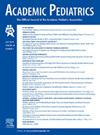解决种族主义对儿童和青少年健康的影响:公平直到平等。
IF 3
3区 医学
Q1 PEDIATRICS
引用次数: 0
摘要
种族是一种基于生理特征的社会政治建构,而非生物建构。种族主义是一种基于 "种族 "这一社会政治建构而赋予价值和资源的制度。在美国和世界其他国家,种族主义与不同的健康结果和预期寿命缩短有关。健康公平利用多个部门(如住房、教育、商业、政府)的健康相关系统(如医疗服务提供者、保险公司、医院、研究、制药公司)来分配资源和服务,以纠正和促进与健康和保健相关的政治和社会决定因素。应用健康公平实践和政策可确保每个儿童、青少年和成年人都能获得全面、有实证依据、与文化相关、以需求为基础的服务,从而达到最佳健康状态。本文概述了对儿童和青少年的最佳健康构成挑战的制度和政策中蕴含的种族主义的影响,并提供了有证据支持的前进道路,以促进美国的健康和福祉。在每个儿童和青少年都享有最佳和平等的健康结果之前,健康公平实践和社会正义是必须的。本文章由计算机程序翻译,如有差异,请以英文原文为准。
Addressing the Health Impacts of Racism on Children and Youth: Equity Until Equality
Race is a sociopolitical construct based on physical characteristics, not a biological construct. Racism is a system that ascribes value and resources based on the sociopolitical construct called “race.” In the United States and other countries around the world, racism is associated with disparate health outcomes and shortened life expectancies. Health equity employs health-related systems (eg, health care providers, insurance companies, hospitals, research, pharmaceutical companies) across multiple sectors (eg, housing, education, business, government) to allocate resources and services to correct and promote political and social determinants associated with health and wellness. Applying health equity practices and policies ensures that each child, youth, and adult receives comprehensive, evidence-informed, culturally relevant, and needs-based services to achieve optimum health. This article provides an overview of the impact of racism embedded in systems and policies that challenge optimal health for children and youth and offers evidence-supported paths forward to advance health and wellness in the United States. Until each child and adolescent enjoys optimal and equal health outcomes, health equity practices and social justice are mandatory.
求助全文
通过发布文献求助,成功后即可免费获取论文全文。
去求助
来源期刊

Academic Pediatrics
PEDIATRICS-
CiteScore
4.60
自引率
12.90%
发文量
300
审稿时长
60 days
期刊介绍:
Academic Pediatrics, the official journal of the Academic Pediatric Association, is a peer-reviewed publication whose purpose is to strengthen the research and educational base of academic general pediatrics. The journal provides leadership in pediatric education, research, patient care and advocacy. Content areas include pediatric education, emergency medicine, injury, abuse, behavioral pediatrics, holistic medicine, child health services and health policy,and the environment. The journal provides an active forum for the presentation of pediatric educational research in diverse settings, involving medical students, residents, fellows, and practicing professionals. The journal also emphasizes important research relating to the quality of child health care, health care policy, and the organization of child health services. It also includes systematic reviews of primary care interventions and important methodologic papers to aid research in child health and education.
 求助内容:
求助内容: 应助结果提醒方式:
应助结果提醒方式:


